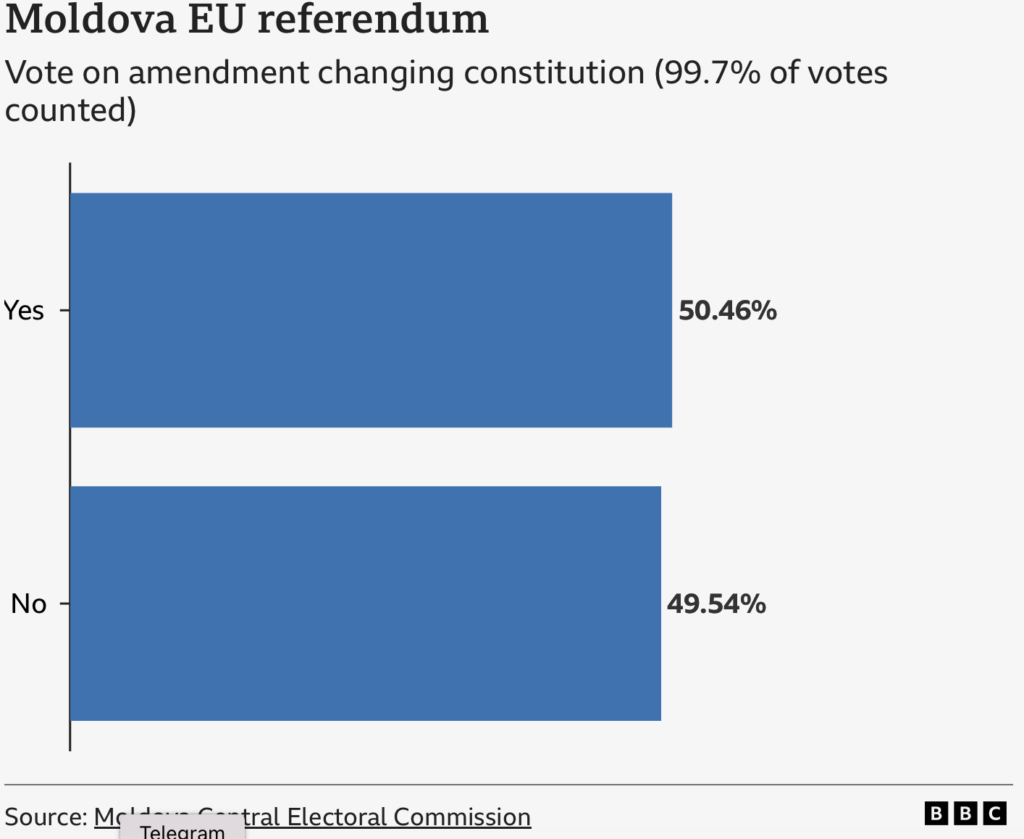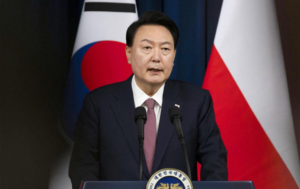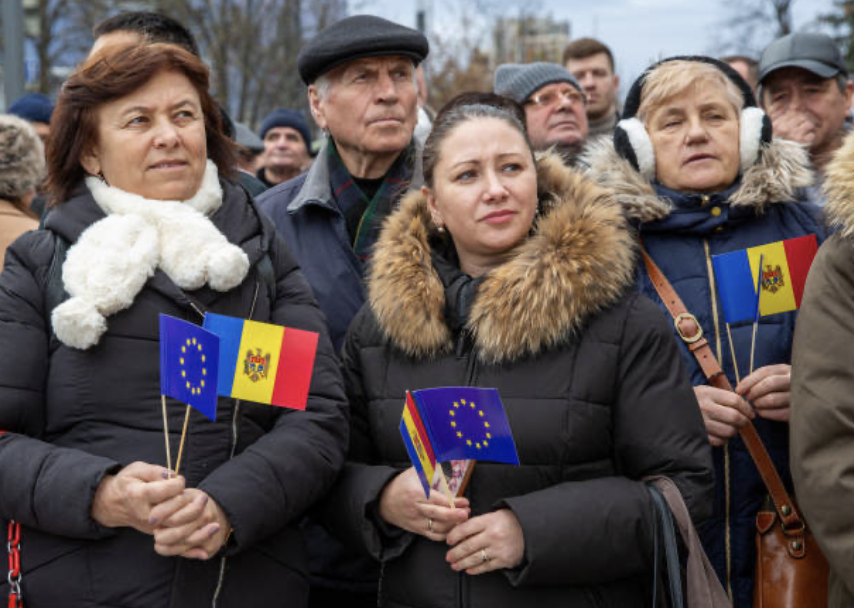Moldova, a state located in Eastern Europe between Ukraine and Romania, lies at the crossroads of two major spheres of influence: the European Union to the west and Russia to the east. This strategic positioning makes Moldova a key player in contemporary international relations, especially in the context of the war in Ukraine.
Moldova’s European aspirations
For several years, Moldova has shown a growing interest in closer ties with the European Union. This interest was reflected in the signing of the Association Agreement with the EU in 2014, paving the way for greater economic and political integration. This agreement includes a Deep and Comprehensive Free Trade Area (DCFTA), which has led to a significant increase in trade between Moldova and European countries. In 2022, Moldova officially obtained candidate status for membership of the European Union, a major step towards integration. And finally, on Monday 21th, October, Moldovan citizens narrowly approved, in a referendum, the proposed constitutional amendments and the country’s commitment to join the European Union.
This pro-European orientation is supported by a significant proportion of the Moldovan population, particularly the younger generations, who see in the EU an opportunity for economic development and the strengthening of democratic institutions. The EU, for its part, considers Moldova to be a key country in its neighbourhood policy, and has provided technical and financial assistance to facilitate the country’s reforms and development.
Russia and the Transnistria question
The referendum on EU membership has been taking place in a climate of extreme tension, exacerbated by the presence of Transnistria, a pro-Russian separatist region in the east of Moldova. This region, which declared independence in 1990 but is not recognised by the international community, continues to receive political and military support from Moscow. Transnistria’s status remains a major obstacle to Moldova’s integration into the European Union. Moscow could use this territory as a lever to further destabilize Moldova and slow down its accession to the EU.

The European Union and the referendum: a support strategy
The European Union is carefully monitoring events in Moldova and actively supporting the democratic process ahead of the referendum. Moldova is viewed by the EU as a strategic ally within its neighborhood policy, and its integration is seen as essential for regional stability. Moldova’s potential EU membership would enhance security along Europe’s eastern borders and reduce Russian influence in a significant post-Soviet region.
However, the EU has tough challenges to manage. While it continues to encourage Moldova’s accession, it must also be careful not to provoke an overly aggressive reaction from Russia. Brussels is therefore banking on cautious diplomacy, while gradually increasing its support for Moldova, notably through economic development projects and humanitarian aid.
Moldova and Georgia: Two European trajectories in the face of Russian pressure
In a referendum, Moldovan citizens narrowly approved the proposed constitutional amendments and the country’s commitment to join the European Union. This situation echoes similar challenges faced by Georgia, another Eastern European country, which also aspires to European integration while facing Russian pressure and internal tensions. Like Moldova, Georgia is struggling to consolidate its pro-European trajectory, marked by political reforms, while managing Moscow-backed separatist regions, notably Abkhazia and South Ossetia. The two countries thus find themselves at a crossroads, faced with complex geopolitical issues between East and West.
Moldova’s referendum on EU membership is a decisive moment for its future and foreign relations. The results will have impacts beyond Moldova, affecting EU-Russia dynamics. The EU has increased its support for Moldova, while Russia monitors the situation closely, prepared to defend its regional interests.










